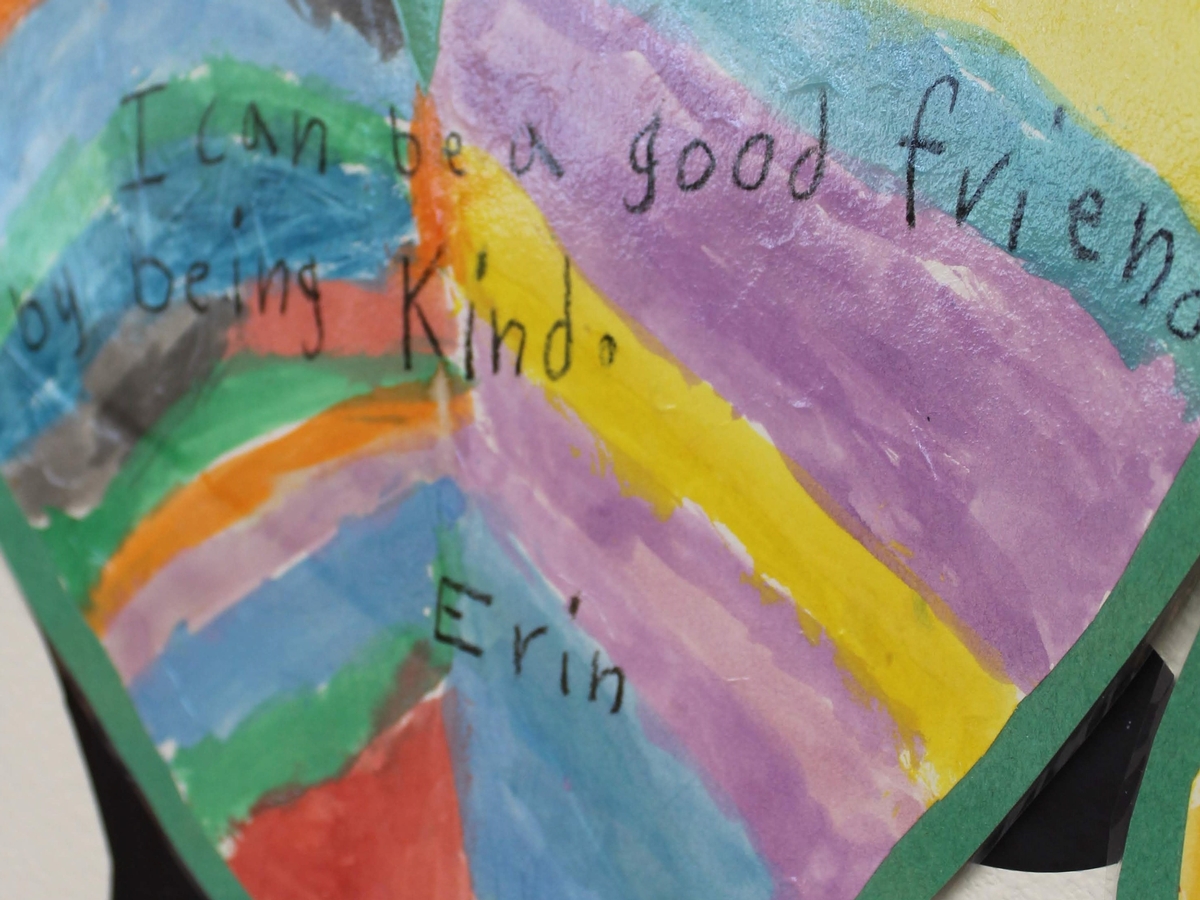Restorative Discipline: Creating an Ethos of Respect

At Gooden, we strive to develop self-regulated individuals who are kind, productive, and empathetic members of the community. To achieve this goal, we put the Gooden 3Rs – Respect for Self, Respect for Others, and Respect for the World – at the center of everything we do. We are continually asking ourselves how we can best uphold and promote the 3Rs. With that question in mind, we have been reexamining our discipline policy with the aim of adopting a system that further embodies the school’s ethos of respect. Beginning in September, we started the implementation of our new restorative approach to behavior, which we are excited to share with our perspective Gooden families.
The restorative approach stems from an appreciation that in the elementary years, children are still shaping and molding their attitudes, values, and sense of right and wrong. The approach recognizes that it is natural that from time to time children make poor behavior choices. In this model, these incidents of misbehavior are viewed as important learning experiences. When dealing with incidents, the aim for any adult involved is to help guide the students to a fuller understanding of what happened, why it happened, and the impact that their behavior may have had on others. By doing this, children learn from the experience, and so are able to make better choices the next time around.
The mix of emotions which drive, accompany, and are created as a result of misbehavior, make this process more complex. Helping children to understand the emotions that are at play before, during and after an incident, is therefore at the center of the restorative approach. The aim is to help the children to see an incident from all perspectives and to put themselves in the shoes of others so that they can more fully grasp the emotional impact of their actions. Having this understanding puts children in a better position to take ownership of their behavior, and take action to restore their relationships with others, either by apologizing or by doing something to right the wrong.
At Gooden, our teachers implement the restorative approach by employing a range of restorative practices in their classrooms. An example of this, for dealing with low-level behaviors such as side-chatter, is the use of affective statements. Here, teachers communicate how a particular type of behavior makes them feel in a generalized way. For instance, “I feel frustrated when people are chatting when I’m trying to teach. I get distracted and lose my train of thought”. By using affective statements like this, the child is not singled out but instead is reminded of how certain behaviors can have an impact on the emotions of others. These statements help to make children more aware of the link between their actions and the emotions of others, without making them feel responsible for an adult’s emotions or causing them embarrassment.
For higher-level incidents of misbehavior like name calling, teachers at Gooden use restorative practices such as Win-Win Conversations. In this practice, a meeting is held between the children involved, and a teacher asks them restorative questions: “What happened? What were you thinking at the time? What have you thought about since? Who has been affected by this?” The intention is to create a caring climate where children can listen and empathize with each other and understand the harm done, and the needs of each person involved. This reflective process encourages the children to take accountability and responsibility for the harm caused, leading them to carry out a logical consequence in order to try to put right the wrong. The details of the incident and the outcomes of the reflective process are then shared with the parents of both children so that the values of empathy and taking accountability can be reinforced and celebrated at home.
It is evident that this restorative approach is having a positive impact at Gooden, helping to develop more empathetic, emotionally literate, and resilient children. And so, as we continue to champion the Gooden 3Rs, we feel excited to be embedding a disciplinary approach that works hand in hand with the core values of our school.
If you would like to find out more about how the restorative approach is used at Gooden, please do not hesitate to reach out directly by email. For further reading on the subject please see the links below:
http://schottfoundation.org/sites/default/files/restorative-practices-guide.pdf
Mr. Matthew Foster is the fifth-grade teacher and Dean of the Lower School at Gooden. Educated in the United Kingdom, he received his bachelor’s degree from the University of Durham, and his teaching credentials and a master’s in education from University College London. Prior to coming to Gooden, Mr. Foster taught in public schools in underserved areas of London and Oxford, where he developed an awareness of the importance of social and emotional learning and a passion for promoting restorative practices.

